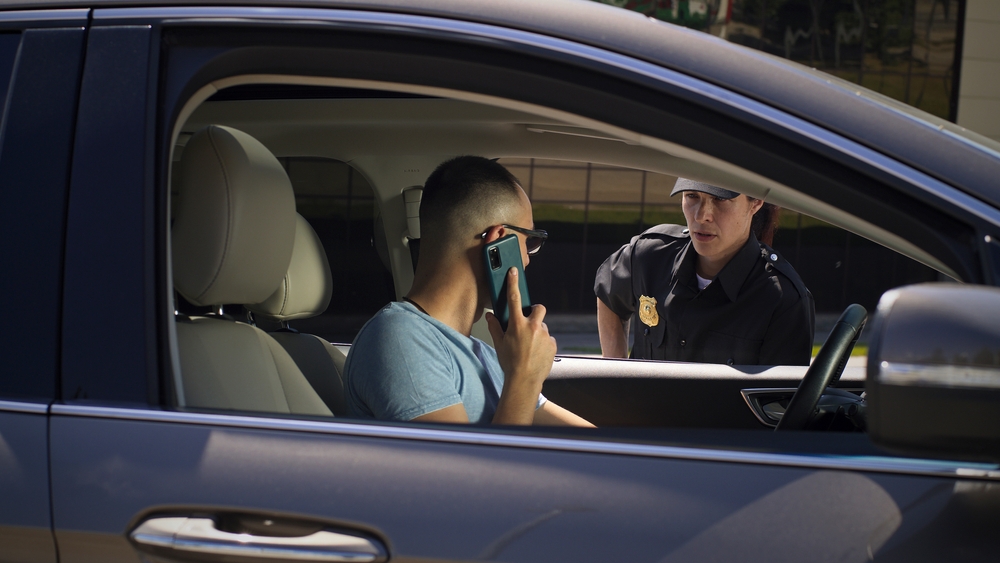
Imagine this: You’re driving home from work in Trenton when the police pull you over for a minor traffic violation. After handing over your license and registration, the officer asks, "Can I see your phone?" Maybe they claim it's routine, or they suspect you were texting while driving. Do you have to comply? What are your rights in this situation?
With so much of our personal and professional lives stored on smartphones, digital privacy is more critical than ever. Understanding your rights can help you protect your private information and ensure law enforcement follows proper legal procedures. In this blog, we’ll break down your digital privacy rights in New Jersey, when police can and cannot search your phone, and what to do if your rights have been violated.
Understanding Your Digital Privacy Rights in NJ
The Fourth Amendment and Cell Phone Searches
Under the Fourth Amendment of the U.S. Constitution, individuals are protected from "unreasonable searches and seizures." This means law enforcement cannot search your property, including your phone, without a valid warrant, your consent, or specific exceptions recognized by law. In 2014, the U.S. Supreme Court ruled in Riley v. California that police must obtain a warrant before searching a cellphone, emphasizing that digital data requires stronger privacy protections.
New Jersey-Specific Laws on Digital Privacy
New Jersey courts have reinforced the need for warrants in digital privacy cases. In State v. Earls (2013), the New Jersey Supreme Court ruled that police need a warrant to obtain cellphone location data. This precedent strengthens digital privacy protections for residents, making it harder for law enforcement to access personal data without proper legal authorization.
New Jersey also has some of the strictest protections against illegal phone searches, reinforcing that individuals have a right to privacy regarding their digital communications. Even in cases involving serious criminal investigations, law enforcement must follow strict procedures to access phone records and stored messages.
When Can Police Legally Search Your Phone?
While the general rule is that police need a warrant to search your phone, there are exceptions. Let’s explore when law enforcement may legally access your digital data:
1. With a Warrant
The strongest legal justification for a phone search is a warrant issued by a judge. A warrant must specify what data police are allowed to access, preventing them from conducting broad, invasive searches.
2. Exigent Circumstances
If officers believe that immediate access to your phone is necessary to prevent harm, destruction of evidence, or criminal activity, they may conduct a warrantless search. For example, if police believe a kidnapping victim’s location is stored on a suspect’s phone, they might argue exigent circumstances.
However, courts often scrutinize claims of exigency. If an officer seizes your phone without clear justification, an attorney can challenge the search in court.
3. Voluntary Consent
If you willingly allow police to search your phone, they do not need a warrant. However, you are never required to give consent, and anything found on your phone can be used as evidence against you.
4. During an Arrest – But With Limitations
If you are arrested, police can take your phone, but they generally cannot search its contents without a warrant. The Supreme Court ruling in Riley v. California confirmed that even during an arrest, officers must secure a warrant before accessing digital information stored on a phone.
Law enforcement may attempt to access call logs or notifications visible on the lock screen. However, courts have ruled that deeper searches of stored data require a warrant.
What to Do If Police Try to Search Your Phone Without a Warrant
Knowing your rights is crucial in protecting your digital privacy. If law enforcement attempts to search your phone unlawfully, follow these steps:
- Stay Calm and Polite: Do not resist or argue aggressively, as this can escalate the situation.
- Ask If They Have a Warrant: If they do not, you are legally allowed to refuse a search.
- Clearly State: ‘I Do Not Consent to a Search’: Say this firmly and politely. Do not physically interfere with the officer.
- Do Not Unlock or Hand Over Your Phone: Even if they pressure you, you are not required to provide access without a warrant.
- Invoke Your Right to an Attorney: If police persist, state that you want legal representation before any search is conducted.
- Document the Interaction: If possible, take note of the officer’s name, badge number, and any witnesses present.
- Seek Legal Counsel Immediately: If police have accessed your phone without consent or a warrant, contact a New Jersey criminal defense attorney as soon as possible to explore your legal options.
Why Hiring an Attorney Matters for Digital Privacy Cases
Navigating digital privacy laws can be complex, and unlawful searches can significantly impact your legal rights. A skilled criminal defense attorney can:
- Challenge the legality of the search and work to suppress unlawfully obtained evidence.
- Ensure law enforcement is held accountable for constitutional violations.
- Protect your rights if you are facing criminal charges based on an illegal search.
- Provide knowledgeable legal counsel to safeguard your digital privacy.
At Attorneys Hartman, Chartered, our experienced New Jersey criminal defense lawyers are dedicated to protecting clients from unlawful searches and upholding their constitutional rights. With extensive experience in defending against illegal searches and seizures, we serve clients in Trenton, Newark, Jersey City, Atlantic City, Cherry Hill, and throughout New Jersey.
Protect Your Digital Privacy – Speak to a New Jersey Criminal Defense Lawyer at Attorneys Hartman, Chartered Today
Your smartphone holds private and sensitive information that law enforcement should not access without proper legal authority. If your rights were violated due to an unlawful phone search, you need experienced legal representation.
Don’t wait. If your digital privacy has been compromised, call Attorneys Hartman, Chartered at 856-393-6073 or request a confidential consultation by filling out our online contact form today.
Disclaimer: This article is for informational purposes only and does not constitute legal advice. Reading this content does not create an attorney-client relationship. If you require legal assistance, consult a qualified New Jersey criminal defense attorney for personalized guidance.
